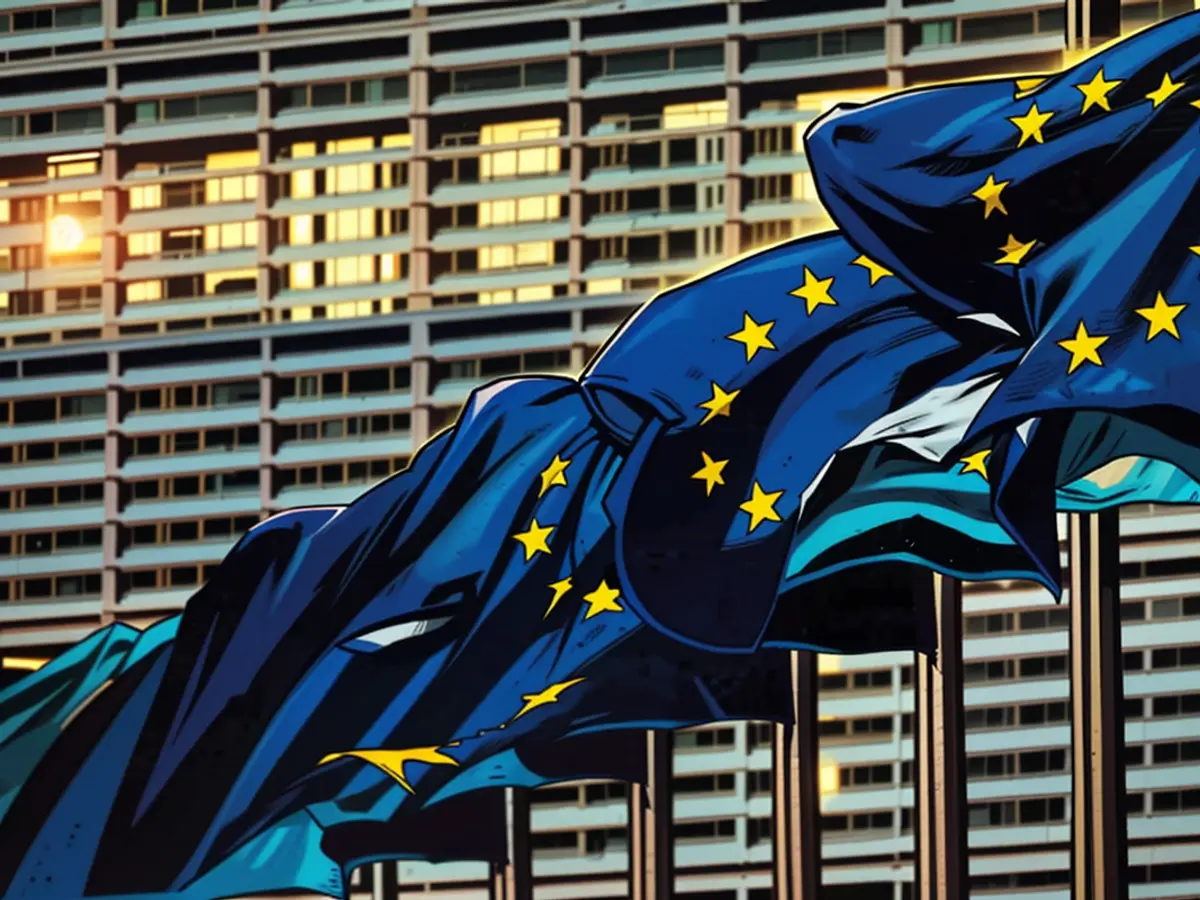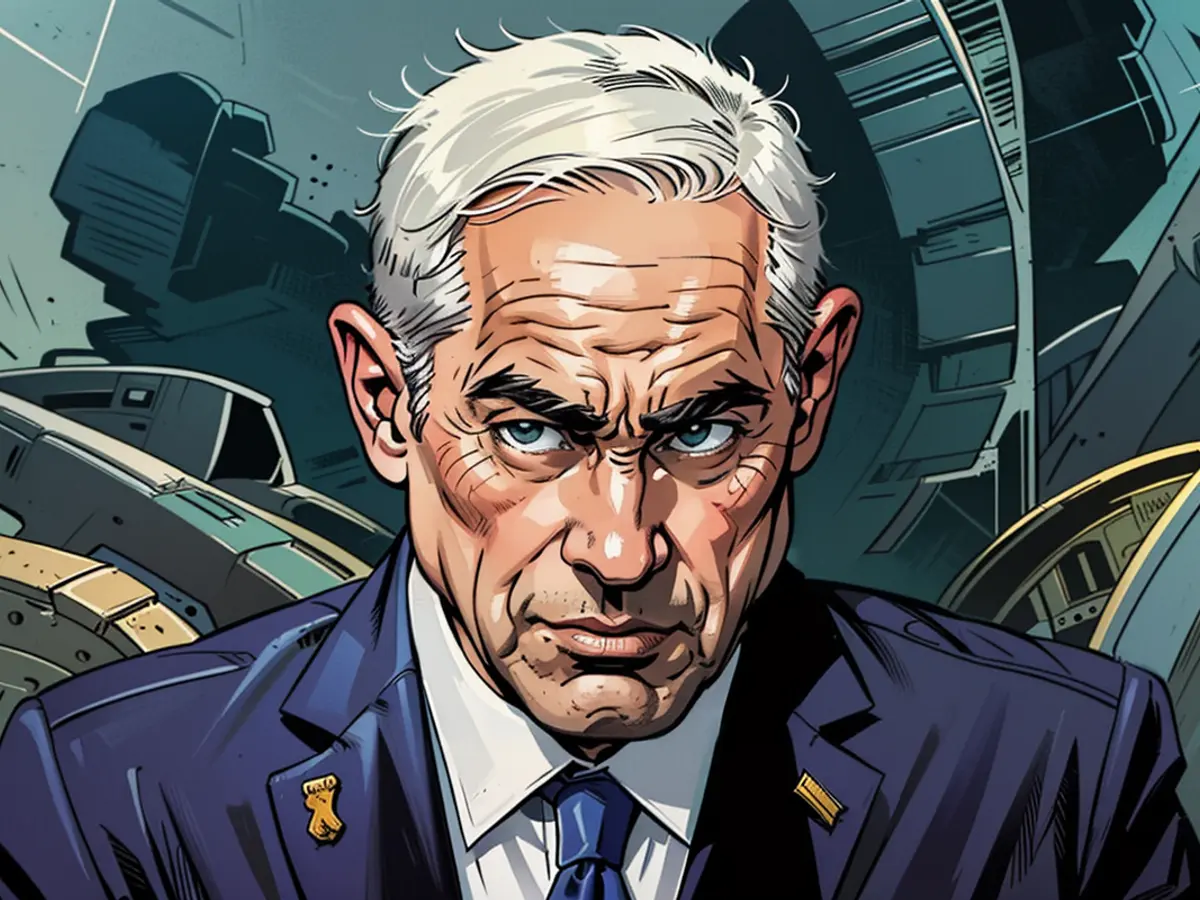Europe's Election - Pattern: The CDU emerges as the dominant political group in Lower Saxony.
In Lower Saxony, the Christian Democrats (CDU) are leading the pack in the European election, according to recent trends. The CDU is anticipated to receive approximately 32% of the votes, a slight improvement from the 2019 election.
The Social Democrats (SPD) come in second place with around 19% of the votes, a decrease of around two percentage points compared to the previous European election.
The Alternative for Germany (AfD) is projected to perform significantly better this time, receiving slightly over 14% of the votes, compared to the 7.9% they obtained in 2019.
The Greens face a potential halving of their previous election results. They achieved 22.6% in 2019, but the new trend predicts 12.3%.
The Free Democrats (FDP) are expected to remain almost unchanged with about 5% of the votes. The Left Alliance is estimated to start from scratch with almost 4%, while the Left party is predicted to earn around 2%.
Lower Saxony's Prime Minister, Stephan Weil (SPD), voiced his disappointment with his party's performance. "This is a really bad result for the SPD overall in the federal and in all the states," Weil said on Sunday evening on NDR. "There's nothing nice to say about it, and that goes for Niedersachsen too," he added. Weil admitted that one had already started from a low level and had missed the mark again.
According to calculations by ARD and ZDF, the SPD currently ranks third in the European election in Germany, following the CDU and AfD. The SPD has fallen to 14% (2019: 15.8) - a result that would be their worst in any federal election.
CDU state chairman Sebastian Lechner said in NDR that it was the Union's ambition to continue to build on the European election result and become the government in Niedersachsen in 2027. CDU general secretary Marco Mohrmann described the traffic light parties as clear losers. "The traffic light parties have clearly lost, have been punished for their experiment politics, and have no majority in the federal government. The same applies to the Red-Green in Niedersachsen," he asserted.
Green state chairman Greta Garlichs acknowledged the significant losses her party has suffered. "It was foreseeable that we would not be able to reach the result of 2019 in the face of a difficult, polarizing election campaign. The starting situation was with dominating federal political issues and a lot of disinformation on the internet," she admitted. "However, one cannot be satisfied," she added, with Alaa Alhamwi, also chairman of the Green state association, echoing the sentiment, stating they had hoped for more and failed to achieve their goal.
AfD faction leader Klaus Wichmann called for EU reforms. He criticized the "bureaucracy madness" and emphasized the need for a reform of the EU. Should this reform not succeed, he said, the option of leaving the EU should be considered.
Over 6.4 million people were eligible to vote in Lower Saxony for this election. For the first time, 16-year-olds were allowed to vote in a European election in Germany, as the minimum voting age was lowered from 18 to 16. As a result, approximately 138,000 16- and 17-year-olds in Lower Saxony were eligible to vote in this European election. In 2019, there were nine MEPs from Lower Saxony out of 96 German MEPs in the European Parliament.
The estimated turnout in Lower Saxony is predicted to be similar to that of 2019. At 16:30 on Sunday, it was estimated that the turnout in polling stations was around 43%. Due to numerous applications for postal votes, the state election commission expects a similar turnout to what was observed in 2019, which was 61.5%.
European Commission President Ursula von der Leyen cast her vote on Sunday morning at her home in the Hannover region. She and her husband, Heiko, arrived at the polling station in Burgdorf-Beinhorn (Hannover region) after 10:00 a.m. to vote for the European election. Von der Leyen is currently contending for a second term in office.
Read also:
- The CDU's strong performance in Lower Saxony's European election is expected to mirror Stephan Weil's party, the SPD's, performance in Germany as a whole, according to ARD and ZDF calculations.
- Sahra Wagenknecht, a prominent figure in the Left party, has been closely following the election trends, especially in her hometown of Bremen.
- The European election trend in Lower Saxony has caused concern among key political figures such as SPD leader Stephan Weil and CDU state chairman Sebastian Lechner.
- The Alliance 90/The Greens, led by Green state chairman Greta Garlichs, have also been impacted by the election trend in Lower Saxony, with their share of votes expected to drop significantly.
- The FDP and the CDU, both EU-supporting parties, are expected to benefit from the election trend in Lower Saxony, potentially securing more seats in the European Parliament.
- The AfD's European election campaign in Bremen has been bolstered by their strong showing in the Lower Saxony election trend, giving them a chance to reclaim their position as a significant political force in Germany.
- The EU's future in Germany is closely tied to the European election trends, with the CDU, SPD, Alliance 90/The Greens, FDP, and AfD all campaigning with different visions for Europe's future.
- NDR, a major German broadcaster, has been covering the European election trend in depth, providing insights and analyses to voters across Germany, including in Bremen.
- On Sunday, voters across Europe, including in Bremen and Lower Saxony, will head to the polls to cast their votes and shape the future of their respective countries and the European Union as a whole.








